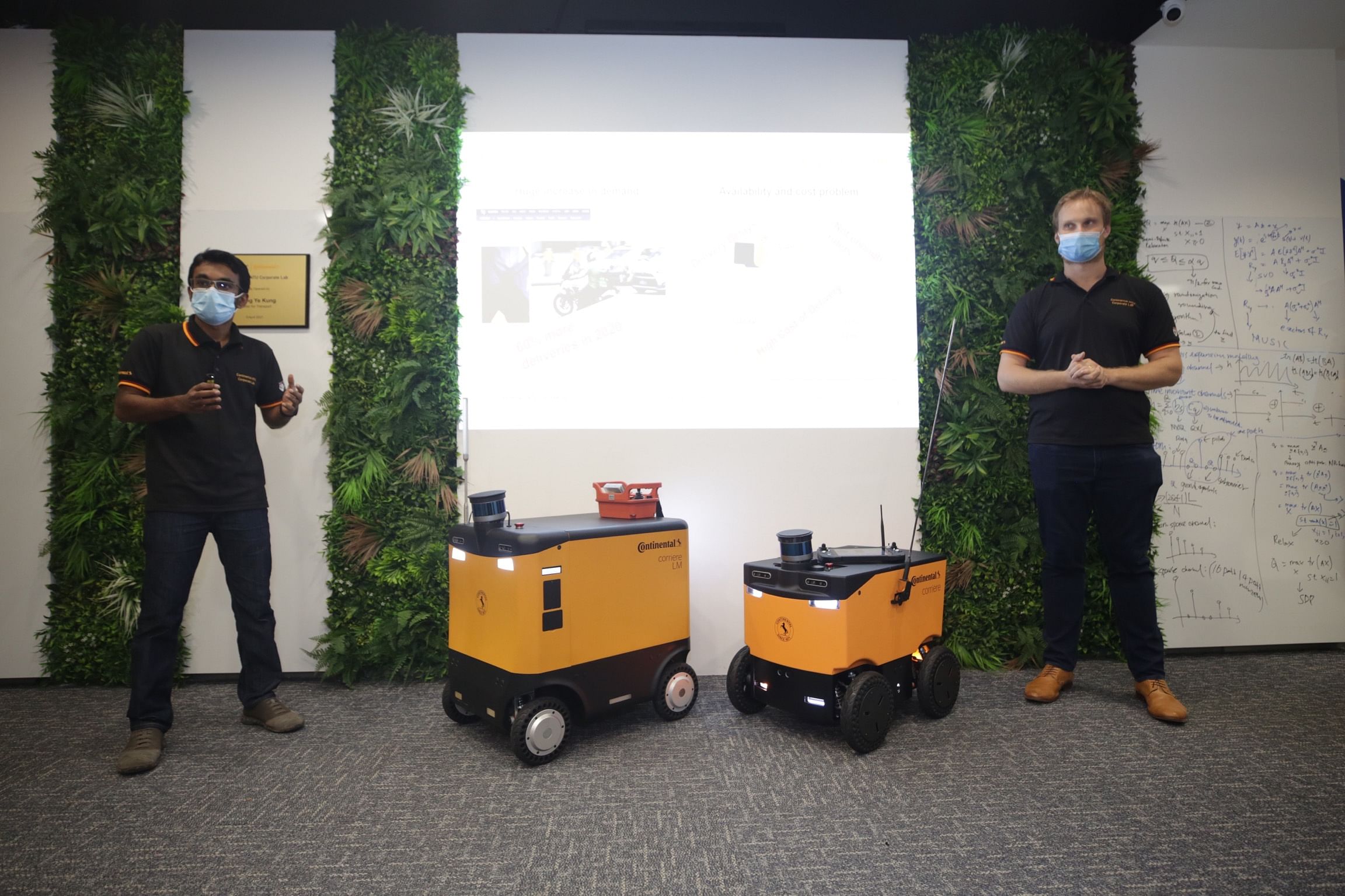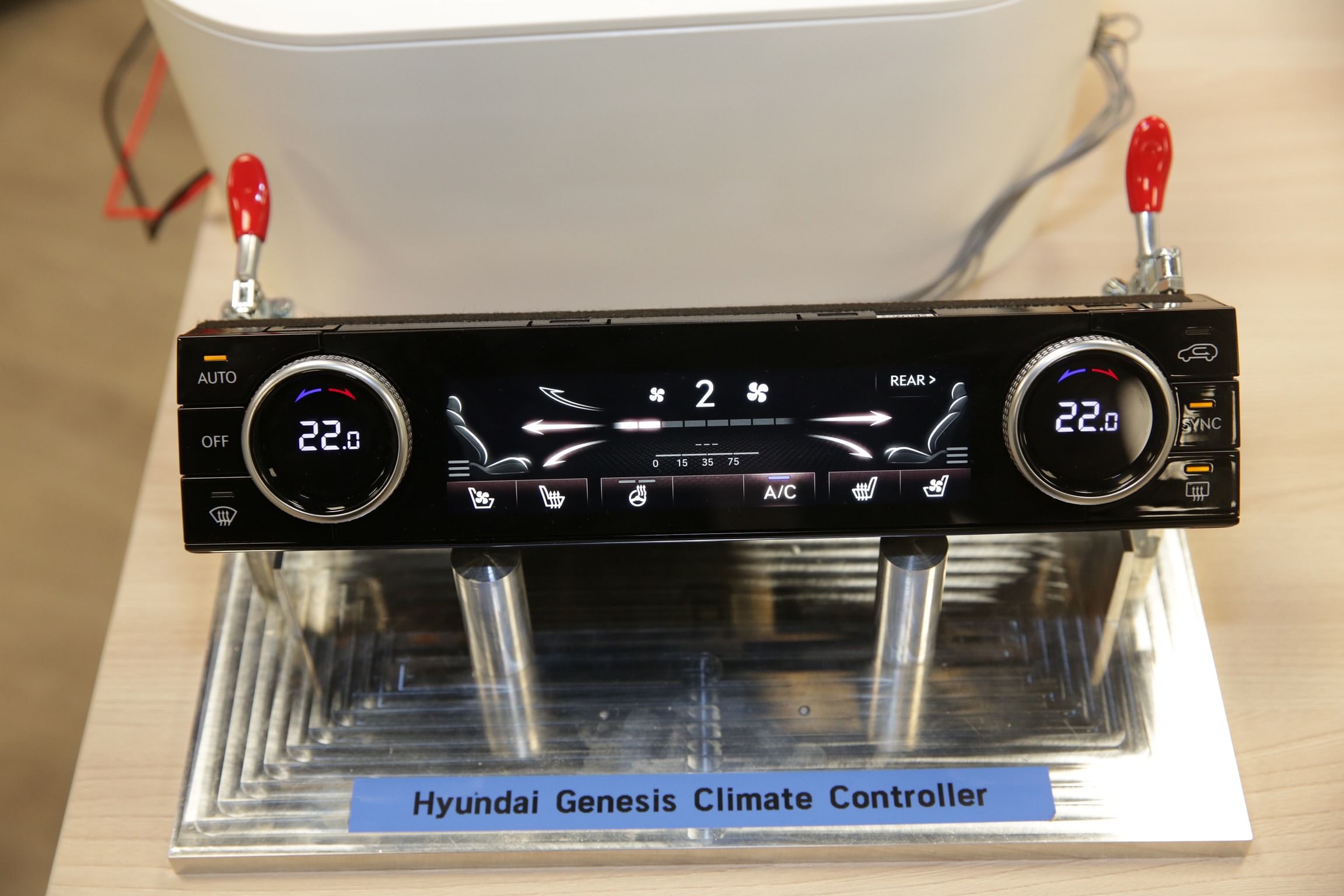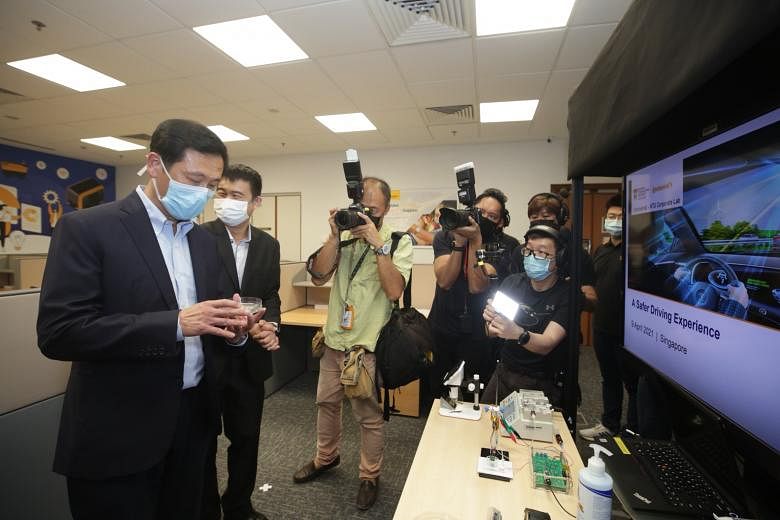SINGAPORE - A $50 million corporate lab that will accelerate innovation in Singapore's automotive industry was officially opened at Nanyang Technological University (NTU) on Friday (April 9).
The 800 sq m facility is a five-year collaboration between NTU and German tech firm and automotive supplier Continental.
Around 90 full time researchers from NTU and Continental as well as about 80 NTU undergraduate and postgraduate students will be trained in the lab over this period. Plans have also been made to recruit those under the SGUnited Traineeships Programme.
Work on 16 industry-focused projects under three main research areas are already underway: smart robotics and navigation technologies to enable last-mile deliveries; artificial intelligence (AI) and software engineering; and leveraging on innovative materials and communication technologies to develop tools such as advanced sensors and touch responsive interfaces.
This is in line with Singapore's smart nation initiatives to leverage data and digital technologies to enhance transportation and to use sensors and data to run a smart, green and liveable city.
Bringing together industry players such as Continental and academic talent and partnering with government agencies such as the Land Transport Authority (LTA) will allow the lab to speed up the commercialisation of research ideas.
Transport Minister Ong Ye Kung told the opening ceremony: "Today's event is meaningful because we are bridging across several fronts."
The first front is bringing the talent and know-how in academia and translating that into industry. The second is to connect government and the rest of society, while the third bridge is between Singapore and Germany, where despite the pandemic, the two countries were still able to work together, Mr Ong said.
A new collaboration between industrial landlord JTC Corporation and LTA to trial autonomous robots for last-mile deliveries was also announced at the ceremony on Friday.
This collaboration will see Continental's robot, the Corriere, navigate traffic junctions, clear building security turnstiles and even take lifts autonomously.
The robots will undergo two food delivery trials soon. The first is in Boon Keng, while the second trial in the second half of this year will see items such as bubble teas delivered from Westgate to the JTC Summit building.
NTU president Subra Suresh said: "These 16 projects will draw on the expertise of faculty members and scientists from NTU's engineering and social science schools as well as its research institutes, and Continental's wealth of industry experience, to generate game-changing solutions that can be translated into actual products or services for Continental's customers."
Continental chief technology officer Dirk Abendroth, who attended the event virtually from Germany, said it was logical for his firm to increase its engagement with Singapore and NTU: "Singapore is a tech hot spot... and NTU belongs to the top universities globally.
"NTU is the most experienced university in Singapore with corporate labs - it has seven corporate labs today from other big global companies," Dr Abendroth said.
The corporate lab is also supported by the National Research Foundation.
The lab at NTU will house 16 industry-focused projects. Here are some notable ones:
1. Autonomous delivery robots

Named Corriere, this robot can run on fixed routes to deliver food. Other than using computer vision technologies to navigate, the robot will also be able to "communicate" with different technology systems, such as lifts and traffic lights.
Several trials lasting three to six months have been planned at multiple locations such as Boon Keng, Jurong East and NTU.
The robots come in different sizes and can deliver up to 15kg of products. To ensure safety, the robots will be travelling at a speed of 5kmh, though they are able to reach 20kmh.
The team will also be working on sustainable business models for the delivery platform. Safety assessments and regulatory advice will be administered by the Land Transport Authority.
2. Wearable smart skin patch biosensor for drivers

With around 1.35 million deaths each year from traffic accidents around the world, a skin patch that can monitor vital signs of a driver may help cut down the number.
The patch can detect abnormal levels of glucose, oxygen, alcohol and drugs in a non-invasive manner.
This skin patch will also be incorporated with Bluetooth or Wi-Fi technology to provide a continuous real time monitoring of physiological signals.
3. Monitoring of car cabins

A smart vision-based monitoring system has been developed to ensure the safety of car occupants.
Cameras and sensors inside the vehicle can detect if something is amiss and trigger a warning. These can occur when the driver is distracted or fatigued, when someone breaks into a locked vehicle or if a baby is left behind in the car.


